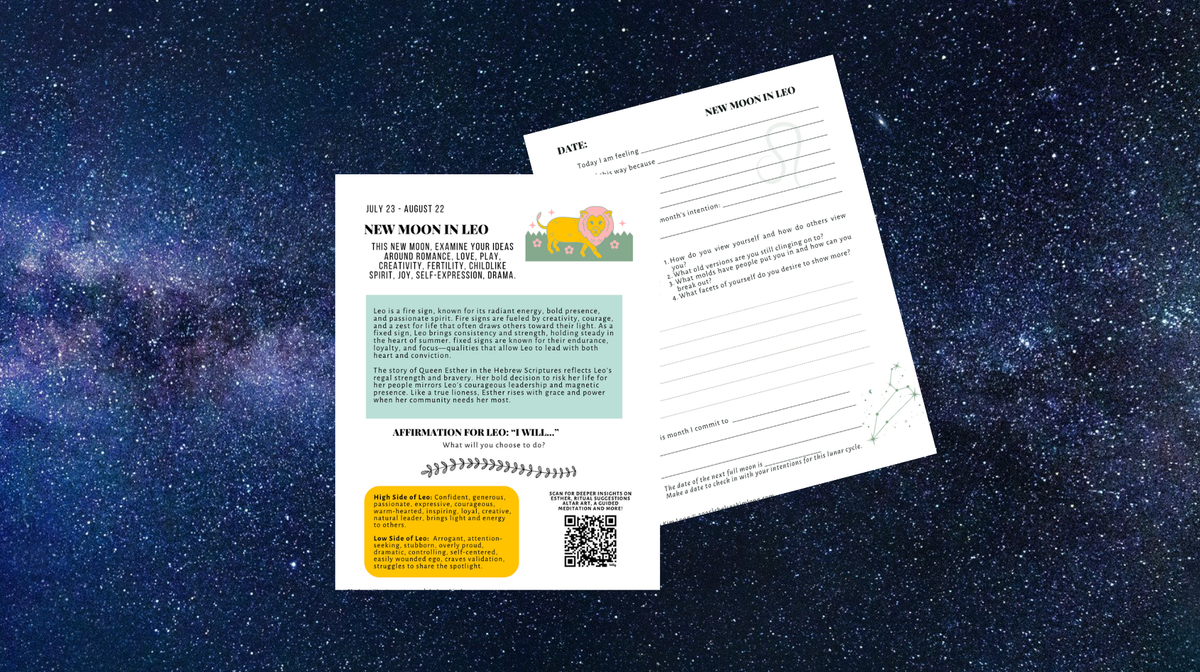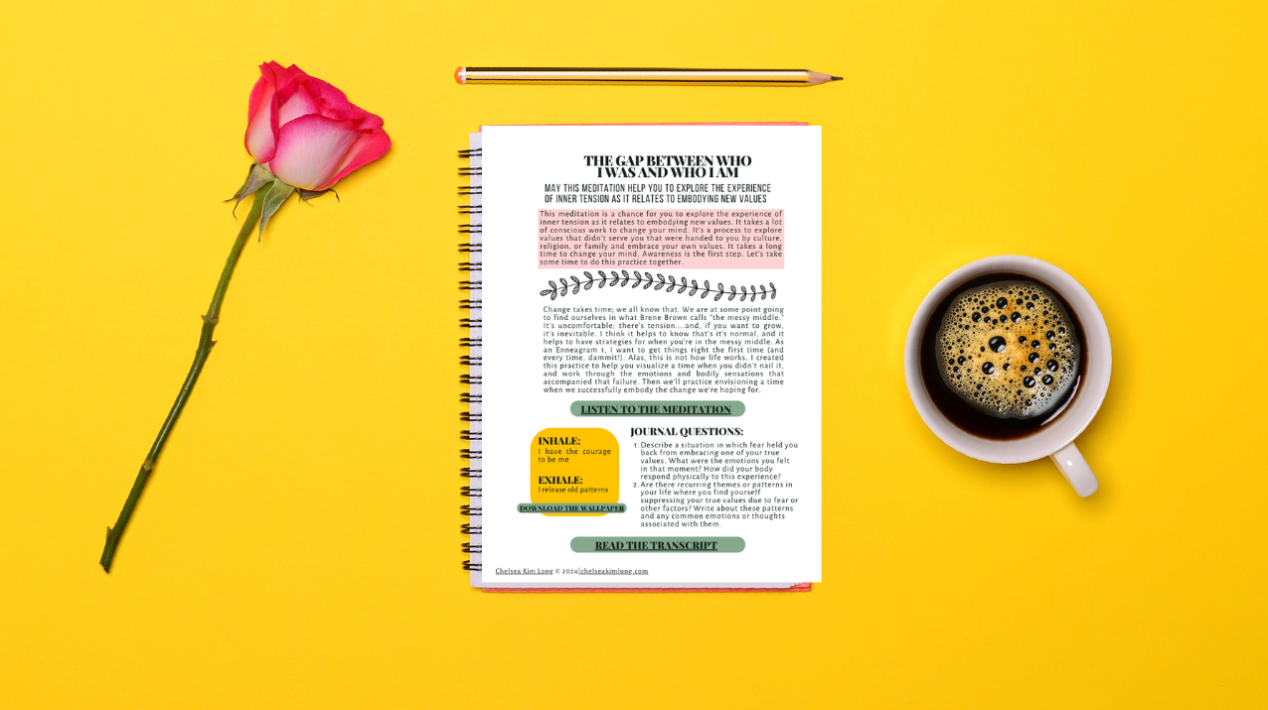New Moon in Leo: Esther and the Fire of Discernment
This new moon, examine your ideas around romance, love, play, creativity, fertility, childlike spirit, joy, self expression, and drama

Leo is a fire sign, known for its radiant energy, bold presence, and passionate spirit. Fire signs are fueled by creativity, courage, and a zest for life that often draws others toward their light. As a fixed sign, Leo brings consistency and strength, holding steady in the heart of summer. Fixed signs are known for their endurance, loyalty, and focus—qualities that allow Leo to lead with both heart and conviction.
The story of Queen Esther in the Hebrew Scriptures reflects Leo’s regal strength and bravery. Her bold decision to risk her life for her people mirrors Leo’s courageous leadership and magnetic presence. Like a true lioness, Esther rises with grace and power when her community needs her most.
The book of Esther is one of two books in the canonical Bible named after its leading female character (the other being our girl Ruth). It uses irony and humor to dive into themes of power and lack of power, ethnic tensions and the threat of genocide, and the consequences of pride.
The story of Esther is about the reversal of power, or as my friend, pastor Brenna Rubio calls it, “The Big Flip.” When we meet Esther, she is a female, Jewish orphan living in exile in a hostile empire. By the end of the story, she reaches the heights of power.
I have an uneasy relationship with power, wealth and influence.
I’ve always had a strong sense of discernment (aka low bullsh*t tolerance). I could always spot an inauthenticity from a mile away, and I tend to steer clear of people who I perceive to have a big ego or tons of charisma.
Over time, that discernment has started to turn a bit cynical; a general mistrust toward people who have power, money, and influence. I’m not entirely unjustified in this perspective. Studies have shown that people in higher socioeconomic brackets tend to demonstrate more entitlement, narcissism, and even dishonesty in pursuit of their own interests. Wealth can diminish empathy, especially toward those who are suffering (source). I’ve started to make a shortlist of people who I perceive as achieving some level of success without seemingly abandoning morals because I need my subconscious to trust that this is still possible (Dolly Parton and Mister Rogers are on the list).
As a woman raised in white evangelicalism, I was taught to trust male authority and to question myself. And I’ve watched so many of those men—Mark Driscoll, Carl Lentz, Jerry Falwell Jr., Bill Hybels—fall from grace in deeply harmful, hypocritical ways. They never had my best interest at heart. And my intuition knew it, even then. Yet so many of us were conditioned to distrust our intuition and to follow orders, not our instincts.
This is why Esther’s story matters. She doesn’t speak until chapter 4, when her cousin and guardian Mordecai urges her to act on behalf of her people. In this chapter we see her moving from a passive character shaped by other’s choices into “the chief actor and controller of events.” According to the Women’s Bible Commentary, “We witness Esther successfully manipulating the power structures of the Persian Empire, using the tools that are available to her to achieve her goals.” Even in a system designed to silence her, she finds a way to lead. (p. 205, source)
The book of Esther lacks any direct mention of God—except, a hint, in the phrase: “And who knows but that you have come to your royal position for such a time as this?” (Esther 4:14). It’s a powerful reminder that human intuition and action can become the holy work of God.
Esther is a model for anyone in minority status under empire—those navigating unjust systems with limited tools and dangerous consequences. Her story is about discernment, timing, courage, and risk.
As Brenna Rubio writes: “The media talk about fascism and oligarchy; we recognize bullying when we see it. We know it’s not right for a small group to keep making their own lives better at the expense of so many others, and with particular cruelty toward the least of these. So we ask ourselves—what does love, what does justice ask of us in this moment?” (source)
This Leo season, reflect on how we use our influence, money, power, and fire. How do we speak up without becoming the very thing we’ve come to resist? How do we lead without domination? How do we trust that we’re going to represent our highest values when we walk into rooms we haven’t yet had access to?
Esther’s fire reminds us that courage can stand still, steady and patient until we know the right moment to speak. And when that moment comes, we do not shrink. We rise on behalf of ourselves and those whose voices are yet to be heard.
In terms of personality traits, each sign exhibits positives and negatives. It’s important to be aware of both, and to notice what you want to emphasize and what energy you can focus on in this season.
High Side of Leo: Confident, generous, passionate, expressive, courageous, warm-hearted, inspiring, loyal, creative, natural leader, brings light and energy to others.
Low Side of Leo: Arrogant, attention-seeking, stubborn, overly proud, dramatic, controlling, self-centered, easily wounded ego, craves validation, struggles to share the spotlight.
SUGGESTED MEDITATION FOR NEW MOON IN LEO: The Gap Between Who I Was and Who I Am

Click to read more about the meditation and access the guide sheet.